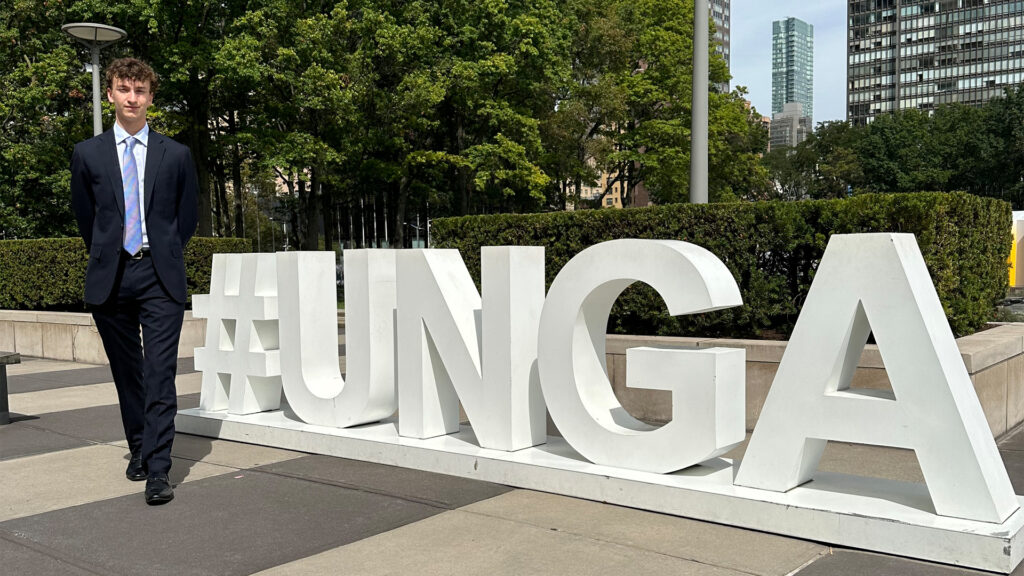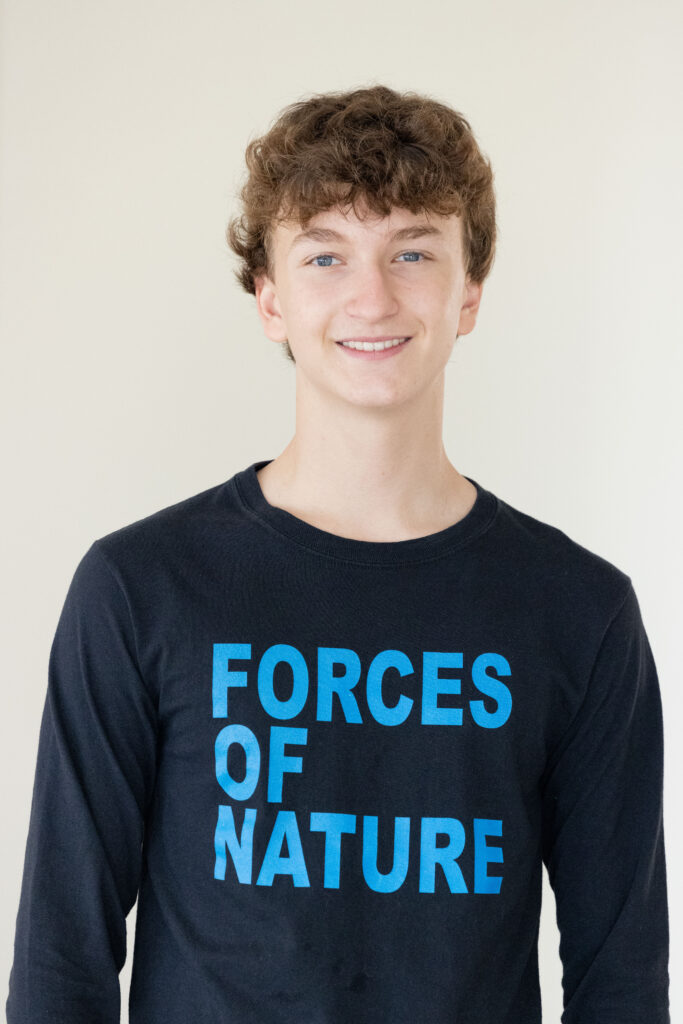By Will Charouhis, Forces of Nature
“Climate collapse has begun.” With these ominous words, United Nations Secretary-General António Guterres kicked off this year’s U.N. General Assembly at the U.N. headquarters in New York City.
Guterres’ opening press conference, following blistering summer heatwaves that shattered temperature records on virtually every continent on Earth, was meant to spark urgency among the world’s decision-makers. Reminding his compatriots that “climate change is here,” Guterres said: “It is terrifying. And it is just the beginning.”

It is with this warning in mind that, as my own flight landed in New York, I pondered my purpose.
I was set to speak with a panel of youth on our hopes for the outcome of this pivotal assembly.
For those who’ve followed my journey as a teen environmentalist, you’re familiar with my optimism. And while some might label my hopefulness as naivete or downright delusion, for so long as one mangrove survives the heat in our warming city, I’ll continue in my refusal to see my world through a bleak lens and keep pursuing my lofty goal to halt climate change. Because to do anything less ensures an unthinkable ending.
But to borrow the words of American journalist David Wallace-Wells, “It’s time to panic.”
Guterres’ goal as the General Assembly picks up speed over the next few days is for the 193 member states to commit to take enough action to catch up on the lagging sustainable development goals that will ensure our very survival. The 17 sustainable development goals, known as the SDGs, were entered into voluntarily by all nations in 2015 and are considered essential to achieve by 2030 to ensure a sustainable future for us all.
So where do we stand, and why now? In the U.N.’s most recent stock-taking, more than half of our targets show alarming deviations from the necessary course. In a last-ditch effort to get us back on track, it’s halftime, and Guterres has packed this week’s agenda with a multitude of offensive plays, including an SDG Weekend, an SDG Leaders Summit and a Climate Ambition Summit.
Inside the hallowed U.N. halls, there’s a cacophony of languages from around the world. At the SDG hub, I met youth from Bangladesh and Nigeria, and had lunch with the Saudi Arabian delegation. In a nod to increasing diversity, females and youth dominate multiple panels, the U.N. defining “youth” as ages 18 to 35.
But as I looked around the vast assembly rooms, a few key players I was hoping would help lead the action are missing from the roll call.
Children under 18, making up a third of the world’s population and facing the worst impacts of climate change, are virtually absent.
Indigenous peoples, our best stewards of the natural world, are included in low numbers.
And multiple world leaders have bowed out altogether, including Chinese President Xi Jinping, Russian President Vladimir Putin, French President Emmanuel Macron, British Prime Minister Rishi Sunak, Indian Prime Minister Narendra Modi and United Arab Emirates President Sheikh Mohammed bin Zayed Al Nahyan. Even President Joe Biden, who made his appearance Tuesday, will not be attending the U.N.’s Climate Ambition Summit set for later in the week.

My time at the General Assembly was brief, with the action just getting started. But my takeaway is this: While our warming planet is expected to contribute to more than 3.4 million deaths per year by the end of the century, it won’t be climate change that does us in. Humanities’ greatest danger, the peril that threatens our very existence, is our disconnect from nature and from one another.
Symbiotic relationships that exist in the natural world have ensured the survival of millions of species. Yet as I scan the seats that will remain empty at this week’s General Assembly, I have to ask myself: Will we, the most intelligent species ever to roam the planet, care enough for our environment and each other to forge a future out of the mess we’ve made? And if those with the most to lose, those with the most instinctive know-how and those with the most power are notably absent, how do we possibly forge a sustainable future?
As my plane lifted off out of New York on Monday night, the lights shined brilliantly beneath me, symbolic of the power of world leaders convening there with the intent to do good. I’m trying to remain hopeful. It is, after all, the City of Dreams.
But the clouds have rolled in, and I can’t see the stars anymore.
Will Charouhis is a 17-year-old climate activist from Miami. He is the founder of Forces of Nature, a youth-led organization with a mission to stop climate change.
If you are interested in submitting an opinion piece to The Invading Sea, email Editor Nathan Crabbe at ncrabbe@fau.edu. Sign up for The Invading Sea newsletter by visiting here.




Excellent speech by Will Charoulis
Great to read your thoughts, Will! Though you are young in age, you possess a wisdom that goes far beyond many of those so-called “leaders” who are older, wield power and are perhaps intelligent, but lack the very wisdom that marks an honest and far-sighted person who can see beyond their immediate gratification syndromes to a future worth striving for. They have truly lost their roots and their way, and such a tree without roots will not stand for long!
It is so important to have the youth voice represented and amazing to have young leaders like Will Charouhis
Great article and a greater cause!